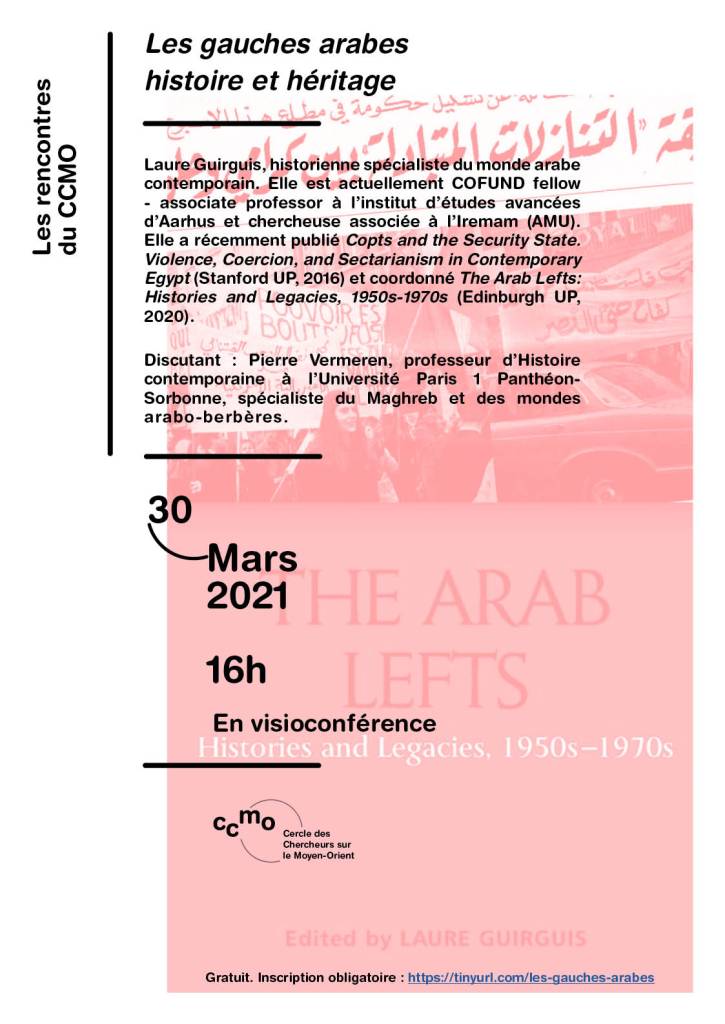Histoire et héritage
Mardi 30 mars 2021 à 16h en visioconférence.
Évènement gratuit, réservation obligatoire : https://tinyurl.com/les-gauches-arabes
À l’occasion de la parution de l’ouvrage collectif dirigé par Laure Guirguis, The Arab Lefts : Histories and Legacies, 1950s-1970s, Edinburgh University Press, avec les contributions de Orit Bashkin, Samer Frangie, Nate George, Gennaro Gervasio, Laure Guirguis, Jens Hanssen, Sune Haugbolle, Jakob Krais, Daniela Melfa, Hana Morgenstern, Maha Nassar, Matthieu Rey, Abdel Razzaq Takriti et Philipp Winkler.
Laure Guirguis, historienne spécialiste du monde arabe contemporain. Elle est actuellement COFUND fellow – associate professor à l’institut d’études avancées d’Aarhus et chercheuse associée à l’Iremam (AMU). Elle a récemment publié Copts and the Security State. Violence, Coercion, and Sectarianism in Contemporary Egypt (Stanford UP, 2016) et coordonné The Arab Lefts : Histories and Legacies, 1950s-1970s (Edinburgh UP, 2020).
Pierre Vermeren, professeur d’Histoire contemporaine à l’Université Paris 1 Panthéon-Sorbonne, spécialiste du Maghreb et des mondes arabo-berbères.
Présentation de l’éditeur :
The Arab Lefts explores the entangled histories of Left-wing trends across the Mashreq and Maghreb regions in the ‘Long Sixties’. Based on an analysis of textual and audio-visual materials, it surveys radical Left traditions in the Arab world that took shape between the 1950s and 1970s.
The book is divided into three thematic parts that are compiled of case studies utilising a multitude of perspectives in political theory, history, literary studies and sociology. In the first part, the authors study revolutionary circulations of men, representations, and know-how. The second part is devoted to interrogating the multifaceted tensions between local, regional, and global challenges. The final part scrutinises the transformations of political subjectivities and invites reflection on the general shift from a revolutionary configuration of temporality to the closure of time – and the so-called ‘Left Melancholy’. The result is a balanced account of Left-wing revolutionaries that provides new insights into the history of the Middle East as well as contemporary radicalisation processes and authoritarian rules.

